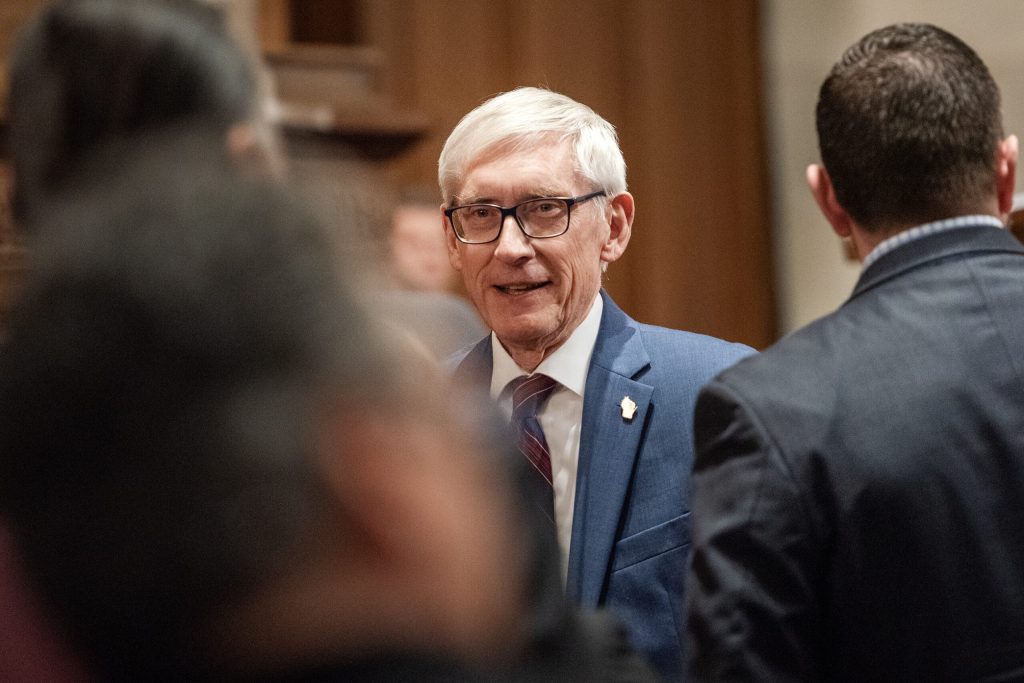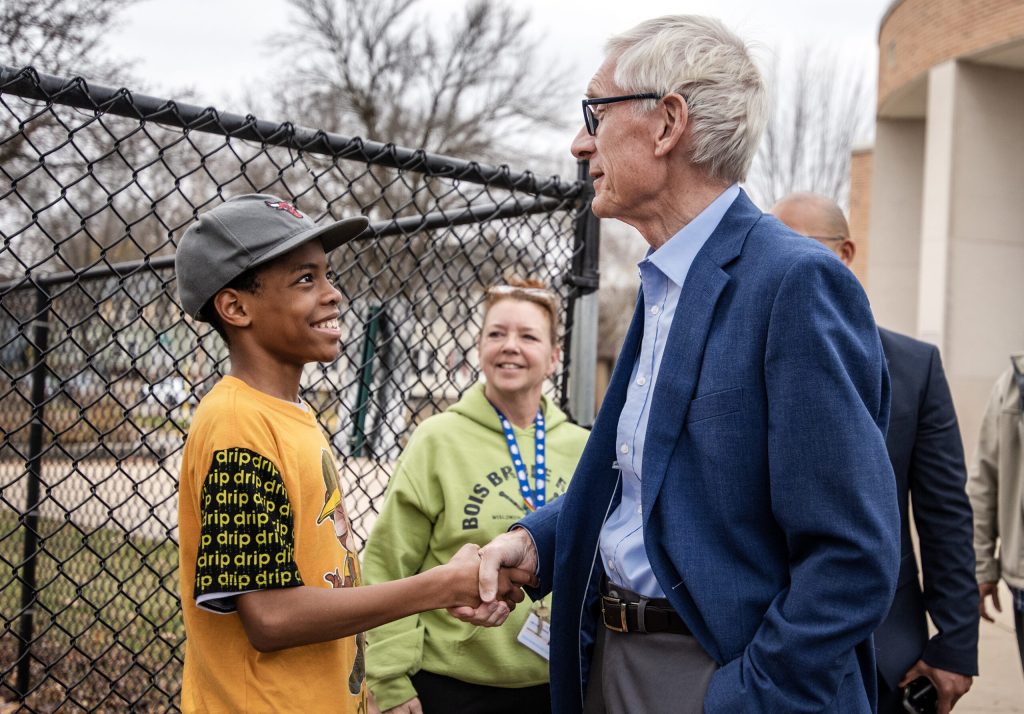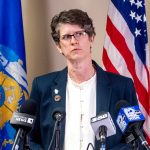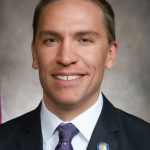Governor Touts Wisconsin Budget as Bipartisan Compromise
Evers won't say whether he will run for reelection, but predicts he'd win.

Gov. Tony Evers greets lawmakers before giving the State of the State address Tuesday, Jan. 23, 2024, at the Wisconsin State Capitol in Madison, Wis. Angela Major/WPR
Democratic Gov. Tony Evers called Wisconsin’s new budget an example of bipartisan negotiations for a purple state, leaving some priorities on the table in order to get the two-year spending plan past the finish line.
Evers signed the $111-billion state budget into law on July 3, after months of negotiations between his administration and the Republican-controlled state Legislature. The budget ultimately passed both chambers of the Legislature after needing Democratic votes to push it through the state Senate.
Evers spoke recently with WPR’s “Wisconsin Today.” He said the lack of an increase for general school aid was one area of compromise and could lead to higher property taxes through local referendums.
“At the end of the day, we worked with the Legislature to get, frankly, as much as we could for our schools,” he said of the $1.4 billion in K-12 funding. “When you compromise, you compromise. You don’t get everything you want and you get some things you do want.”
On “Wisconsin Today,” Evers discussed the next steps for closing the Green Bay Correctional Institution, education funding and reelection plans.
The following was edited for brevity and clarity.
Rob Ferrett: One of your priorities was the boost in special education compensation going to schools. That did end up in the final budget. How important was that for you?
Tony Evers: It was really important because of two things. One is the state needs to provide more resources in the arena of special education. And it was a significant increase as the largest increase in special education funding from the schools in decades. That was really important.
But at the end of the day, that also has the opportunity to use the state money for special education. In the past, what’s happened is the school districts have had to fund that out of their own money. This way, we’re able to put those other dollars that they have at the school to make sure they’re doing what they need to make sure their kids are in a good place.

Gov. Tony Evers shakes hands with an 8th grade student Wednesday, Nov. 9, 2022, during a visit to Georgia O’Keeffe Middle School in Madison, Wis. Angela Major/WPR
RF: A specific closing date for the Green Bay Correctional Institution was in the budget. You took that out. Why?
TE: It’s a complicated plan and we’ve been working on it for a long time to make sure it gets done. We have to close Green Bay, no question about that. We’re going to do it. But we’ve talked about this as long as I’ve been governor, and frankly even before that when I was state superintendent.
We have to start with closing down Lincoln Hills and Copper Lake, moving those kids out and making that into a medium security prison. There’s all these other things that have to happen first. We just can’t say “Well, we’re going to close Green Bay and those 1,000 people are going to be going where?”
We have to get this done. There are various ways we can do it. But saying in a budget that we’re going to close in 2029 is not a solution. You have to get the other pieces in place, and I’m willing to work with anybody on the other side to make this happen, simple as that. It’s a matter of getting it done.
RF: This budget process seemed to work a little differently than the last couple, in the sense that you and your people and Republican leaders and their people were talking to each other at various points of the process. What was different this summer — because it seemed icier the last couple of budgets?
TE: It seems like when I talk to people, talk to businesses and go to schools, I hear this time and time again: People are hoping that we will compromise, that we will work together. I think there was some kind of overall push for the people saying, “We understand we’re a purple state, we’re going to be a purple state for a long time. Get something done. Work together.” And we did that.
Were there some wins there? Yes. Were there some things that could have been better? Yes. But at the end of the day, we got together to make sure that we’re meeting the needs of the people of Wisconsin.
RF: Election season is coming around. You said earlier this year you would make an announcement at some point after the budget was done. The budget is done. Do you have an announcement for us?
TE: Not today. It’ll happen in the very near future.
RF: What do you weigh as you make that decision?
TE: It’s about what we’ve accomplished, what we have yet to do, personal issues. Do I think that if I ran again that I would win? Of course, there’s no question about that. That piece isn’t something I’m concerned about.
I’m concerned about other pieces. We’ll put it together in the next few days or the next week or so and we’ll make an announcement.
Evers touts Wisconsin budget as bipartisan compromise in a purple state was originally published by Wisconsin Public Radio.
If you think stories like this are important, become a member of Urban Milwaukee and help support real, independent journalism. Plus you get some cool added benefits.























Hope Gov Evers runs again.
He’s the kind of person I look to vote for: clear, deliberate thinker, respectful, TRUTHFUL, intelligent and he has an appropriate sense of humor.